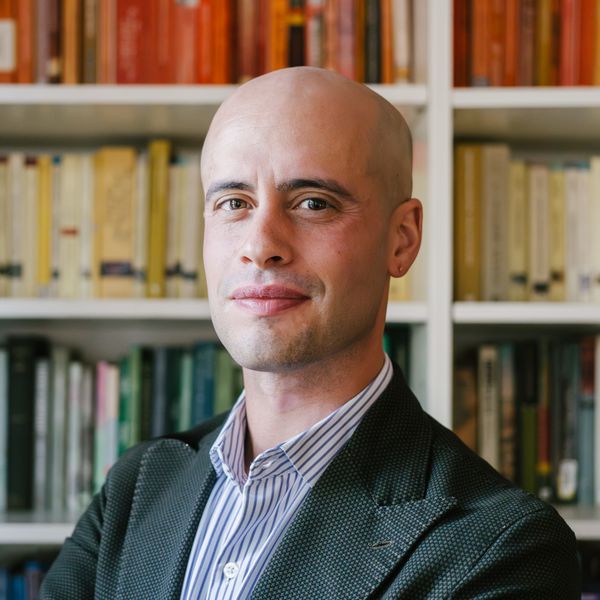
Associate Professor of History
he/him/his
History of economic life and development, modern South Asia, environmental history, agricultural history, history of medicine and the body
Benjamin Siegel is a scholar of transnational economic life, politics, agriculture, and the environment. His work examines how people in modern states conceptualize, debate, and leverage their material and non-material resources, returning frequently to a geographic focus on South Asia and its entanglements with the wider world.
Professor Siegel’s latest book, The Ghost Ship: Pharmaceutical Opioids and Political Power in the Modern World, is forthcoming in 2025 from Oxford University Press. The book offers a new account of how opium, a quintessential colonial commodity, was remade into a twentieth-century resource for modern medicine in the global north, and state-building and national development in the global south. His first book, Hungry Nation: Food, Famine, and the Making of Modern India (Cambridge University Press, 2018), demonstrated how questions of food and scarcity structured Indian citizens’ understanding of welfare and citizenship in the twentieth century.
In his new research, Professor Siegel is focusing on the changing nature of resources, value, and labor in the long twentieth century. He is working on a global history of states, children, and childcare, and a project on automation, work, and production in modern India.
Professor Siegel’s work has been published in the American Historical Review, Comparative Studies of South Asia, Africa, and the Middle East, Contemporary South Asia, Environmental History, Humanity, the Indian Economic and Social History Review, the International History Review, Modern Asian Studies, and other journals and edited volumes. Dr. Siegel received his B.A. from Yale University and his A.M. and Ph.D. from Harvard University; his work has been sponsored by the American Council of Learned Societies, the American Institute of Indian Studies, the Smithsonian Institution’s Lemelson Center, and the Boston University Center for the Humanities.
At Boston University, Professor Siegel teaches regular courses on the history of South Asia, development in comparative perspective, food and agriculture, and history of medicine and the body; he supervises regular reading fields for graduate students in related fields. Professor Siegel was the 2020 recipient of the Frank and Lynne Wisneski Award for Excellence in Teaching, the 2021 recipient of the Gerald and Deanne Gitner Family Undergraduate Teaching Prize in History, and the 2022 Templeton Award for Excellence in Student Advising and Mentoring.
Prior to coming to Boston University, Professor Siegel was a researcher and reporter for Time in New Delhi and Hong Kong, a Yale University Fox International Fellow at Jawaharlal Nehru University in New Delhi, a visiting fellow with Hong Kong University’s Centre for Medicine and the Humanities, an affiliate researcher at the Indian Agricultural Research Institute, a Graduate Fellow at the Harvard Academy for International and Area Studies, and an affiliate fellow at Yale University’s program in Agrarian Societies.